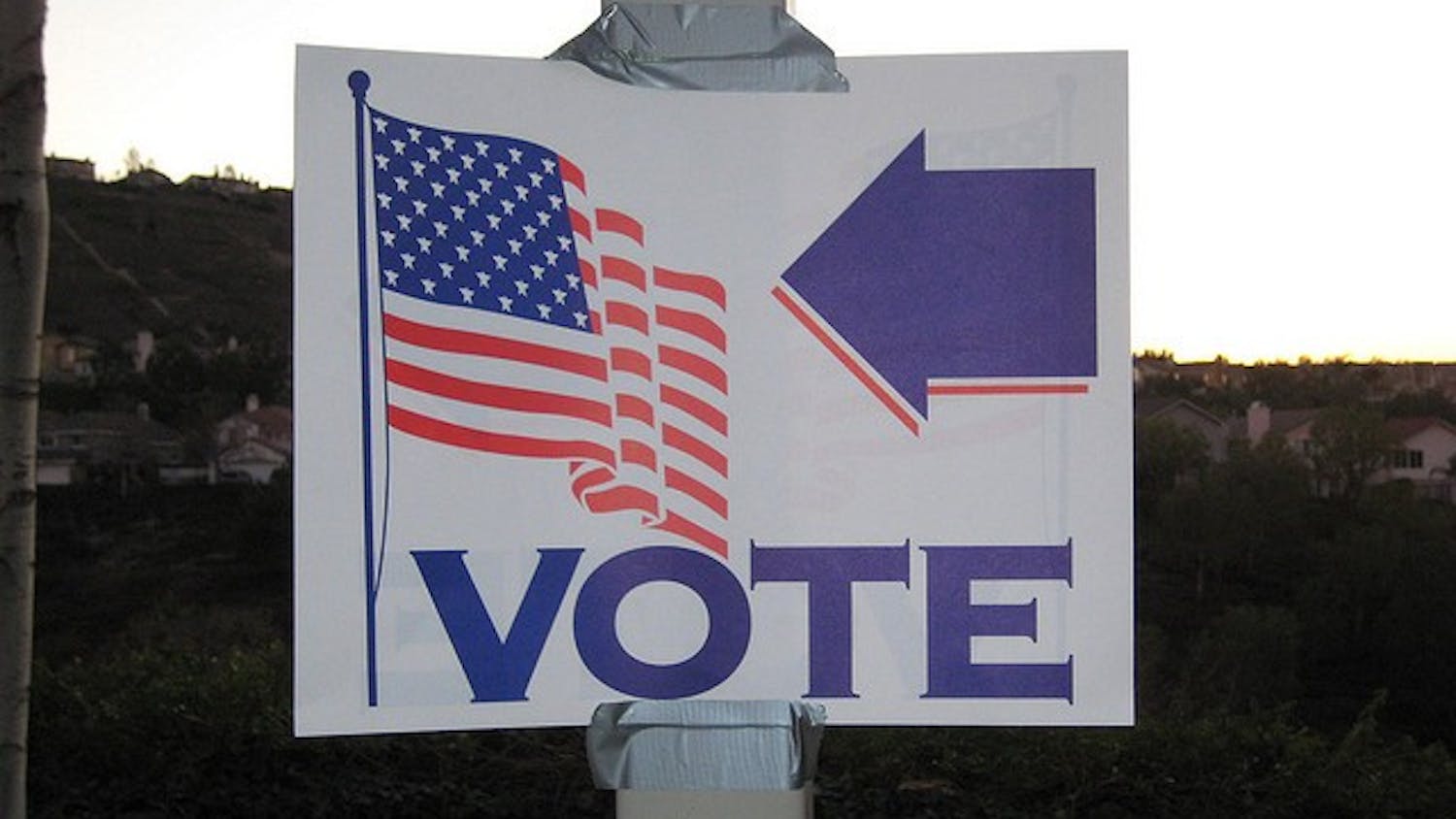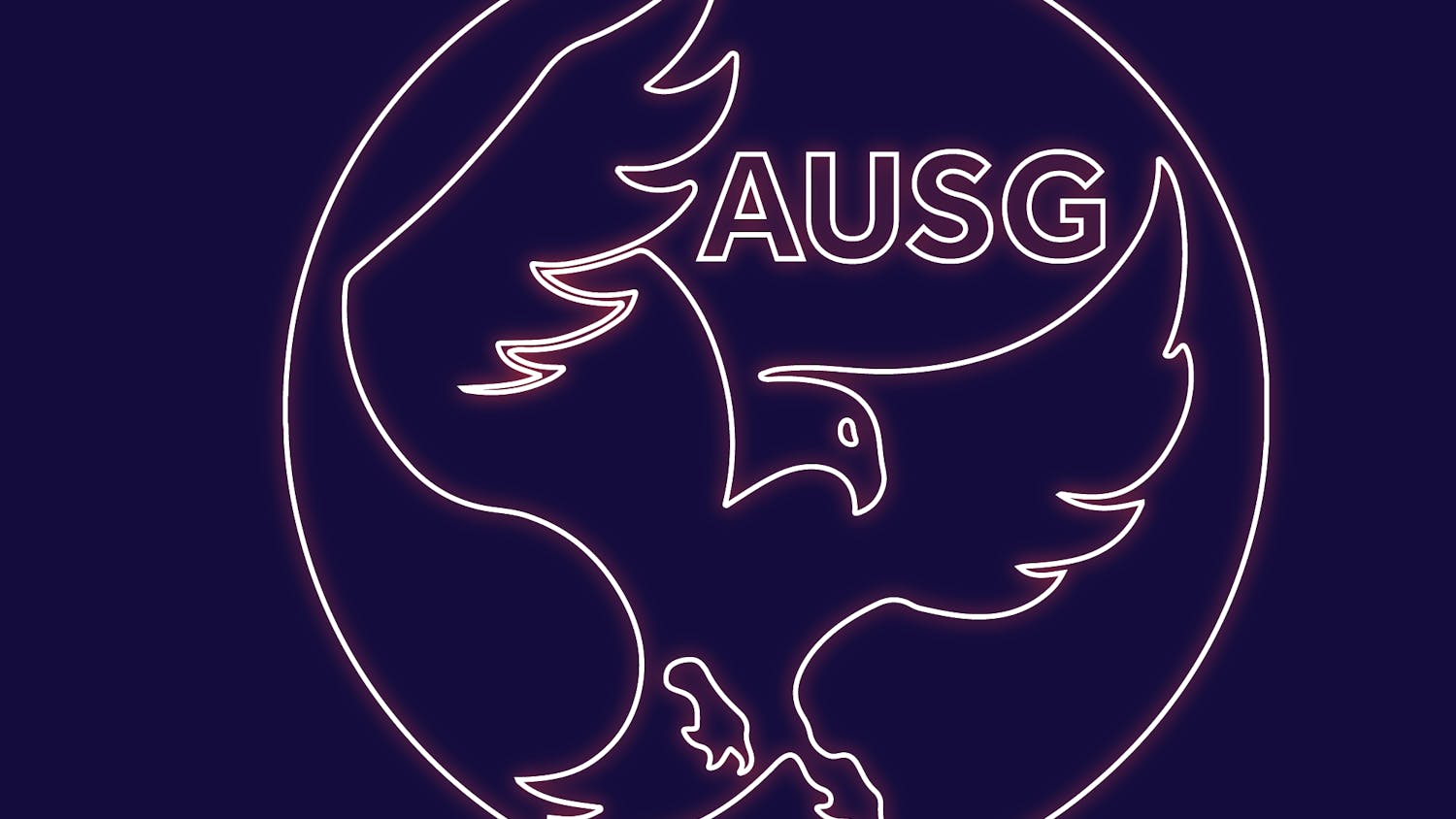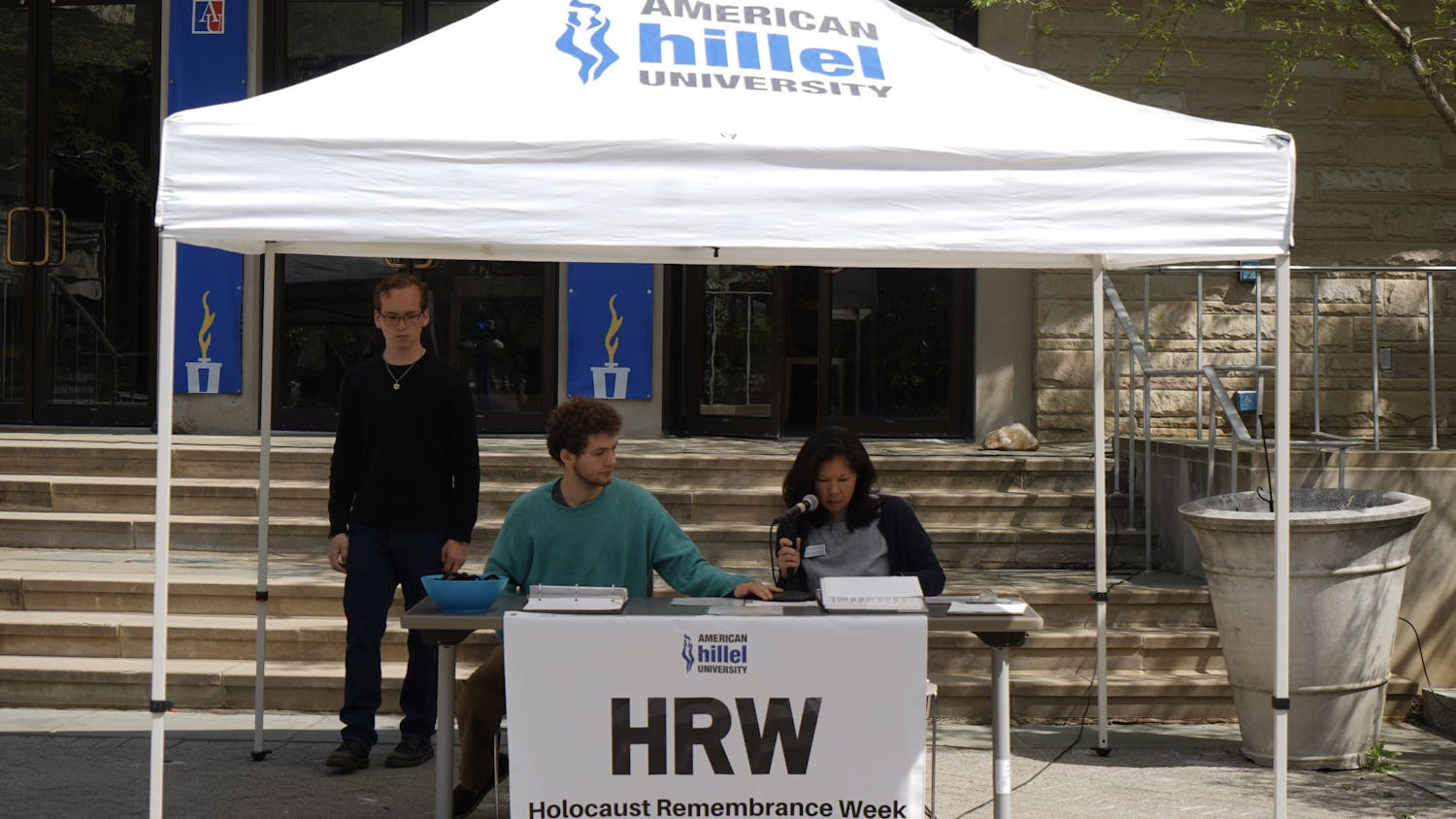Correction Appended
As the administration implements the newly revised Student Conduct Code this year, student leaders have expressed mixed feelings about the fairness of the new code.
Student Advocacy Center Director Aleksandra Kocelko, Student Government President Nate Bronstein and Inter-Fraternity Council President Adam Tager said they are concerned about the expansive reach of the code’s new off-campus misconduct policy, and they wonder how it will be put into effect this year.
Student Advocacy Center
Kocelko will serve on this year’s Student Conduct Advisory Board. The board is made up of students and staff members who determine what conduct code policy changes should be considered.
She feels that many of the new changes to the conduct code will benefit students, but the administration should work further on revisions such as the off-campus misconduct policy.
The changes that she feels will benefit students include the new record retention policy, which now states that student disciplinary records will no longer be released upon graduation. The previous policy provided that the records be held available to third parties for up to five years.
This new record retention policy, however, excludes charges of suspension, expulsion and removal from housing.
Kocelko also said the updates to the disciplinary procedures were a good step. Students now have the option of appealing misconduct charges through a conference instead of a hearing. A hearing involves a trial with faculty, staff and students and requires witnesses and statements. A conference is only between a student and a hearing officer.
“Students can [choose to] go with a less intimidating situation,” Kocelko said. “But [they will] not lose the right to appeal.”
However, Kocelko was not as supportive of the new revision that allows students to be disciplined by the University for off-campus misconduct, regardless of whether or not the misconduct violates local, state or federal laws.
The SAC is concerned about the broadness of the conduct code revisions, Kocelko said. She feels this policy is one of the parts of the conduct code that students are most concerned with, especially those students who have moved off campus hoping to have more freedom.
Because this new off-campus misconduct policy is so general, SAC is not sure exactly how it will affect students.
“We can’t help students until we’ve seen how it will be handled,” she said.
Inter-Fraternity Council
IFC President Adam Tager said his organization is disappointed that the administration did not consult the greek community before they made changes to the Conduct Code.
“We would have liked to have been part of the dialogue on conduct code changes before they implemented this [off-campus] policy,” Tager said.
He believes one of the driving forces behind the conduct code changes was complaints from neighbors who live near houses rented by AU students.
However, Tager said the IFC and the rest of the greek community look forward to talking with the administration about how the new conduct code changes will be implemented this school year.
The IFC will hold a conduct code town hall on Wednesday, Sept. 29 at 8:30 p.m. in Ward 1 with various AU offices including Student Activities, Public Safety and Student Conduct and Conflict Resolution Services.
Tager hopes this town hall will send a message to the administration that students are willing to further discuss the conduct code changes.
“We’re going to keep advocating, and we’re going to keep asking to be part of the conversation,” he said.
Student Government
Bronstein said he was enthusiastic about certain revisions to the Student Conduct Code and the way that the administration worked with students to make the revisions.
But he also noted that the administration will have to work to make sure students fully understand the off-campus misconduct policy.
Bronstein praised the administration for their approach to revising the code, which included a panel of students on the Student Conduct Advisory Board, of which Bronstein was a member.
“The administration was very receptive,” he said. “They took our suggestions very seriously. When they implemented our suggestions, they still brought it back to us and talked about it further.”
Bronstein’s main concern for the revised conduct code also involves the definition of the jurisdiction AU has over students off campus and to what degree the administration can hold a student accountable for actions outside of campus.
Bronstein predicts some students will question whether AU has the right to have jurisdiction off campus. However, he does not believe the administration would use the new off-campus misconduct policy without a serious reason.
“I know that this [new rule] is going to be used only in situations where the problem outside of the University is significantly negatively affecting the entire University as a whole,” Bronstein said.
Students react
AU can now discipline students for off-campus misconduct that does not necessarily violate any law.
» Pro: “You are still a representative of the school, but it does depend on the situation. I think if the authorities contact AU, they have every right [to discipline students].” — Jill Hyman, sophomore in the College of Arts and Sciences
» Con: “On what grounds can they do that? When are we citizens, and when are we members of the University? Did I sign up for that?” — Alexandra Beresford, freshman in the School of International Service
“If [the misconduct is] completely unrelated to the school, then it’s not fair.” — Ryan Verhey, sophomore in SIS
New definitions for rape, stalking, sexual harassment and sexual assault are listed in the code, and there is more information about resources for sexual misconduct victims.
» Pro: “I think it’s a good idea ... As a girl, it makes you feel safer. A lot of people brush that stuff [sexual misconduct] off.” — Sarah Back, senior in the School of Communication
The code has a new record release policy that erases students’ discipline records upon graduation, excluding expulsions, suspensions and removal from housing. Previously, records were held for up to five years after graduation.
» Pro: “If I had anything on my record I didn’t want a potential employer to see, I’d be glad my record is being erased.” — Katherine Hekker, sophomore in the School of Public Affairs
» Con: “It shouldn’t be an umbrella erasing [of the records]. There are varying degrees of conduct and that should be reflected.” — Michael Thot, freshman in SOC
Other universities
Excerpts from nearby universities’ conduct codes on stipulations for off-campus conduct:
» George Mason University Judicial System for Student Conduct “Proscribed actions performed off campus by students make the student subject to university discipline when such actions materially affect the learning environment or operation of the University.” www.theeagleonline.com/gmucode
»The George Washington University Code of Student Conduct “Violence of any kind will not be tolerated on or off University premises or at University-sponsored activities ... Hazing is defined as any action taken or situation created, intentionally, with or without consent, whether on or off campus, to produce mental or physical discomfort, embarrassment, harassment, or ridicule.” Under its list of sanctions for student misconduct, GWU’s code stipulates that definitions of “Suspension” and “Expulsion” could mean exclusion from “access to University premises or University-sponsored activities off campus.” www.theeagleonline.com/gwucode
»Georgetown University “This Code of Student Conduct and the accompanying discipline system covers all Georgetown University undergraduate students (whether residing on or off campus or studying abroad), graduate students, and all students enrolled in the School of Continuing Studies ... When alleged violations of University regulations or local laws take place off campus and come to the University’s attention, the University reserves the right to take appropriate action when, in the judgment of University officials, the alleged conduct has a negative impact on the University community or the pursuit of its mission or the broader community in which we live.” www.theeagleonline.com/gtcode
news@theeagleonline.com
Correction: The Eagle previously stated that a student's disciplinary record would be erased after graduation thanks to the changes. In fact, it will not be erased but will be made unavailable to third parties upon graduation. The Eagle regrets this error.




